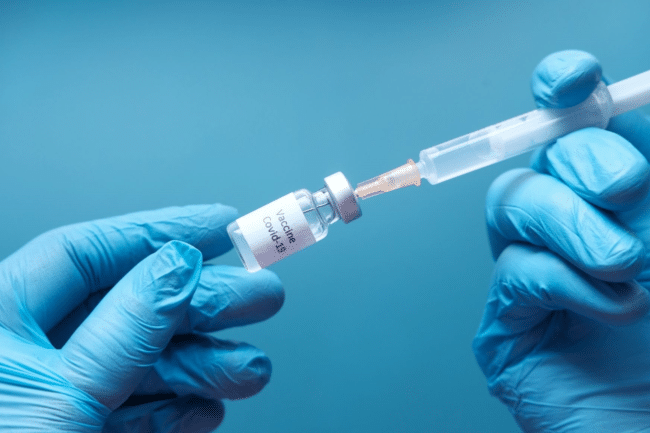COVID-19 Vaccine And Varicose Veins: how might you be affected? The emergence of blood clots from AstraZeneca COVID-19 vaccine has seen increasing concerns over the risks for those with varicose veins and if treatment is still possible for those who have been vaccinated.
There definitely has been a link between the AstraZeneca vaccine and a very rare but serious side effect called Thrombosis with Thrombocytopenia Syndrome (TTS). However, the likelihood of COVID-19 vaccines resulting in blood clots is extremely low – four out of every million people.
The Australian Technical Advisory Group on Immunisation (ATAGI) noticed higher rates of this rare condition in people aged 50-59 years. Hence, they recommend the Pfizer vaccine for people under the age of 60.
ATAGI also recommends people of all ages who have had the first dose of the AstraZeneca vaccine without serious adverse effects have their second dose. Meanwhile, those over 60 can be safely vaccinated with either option.
Does the risk of blood clots increase if I have the vaccine and varicose veins?
Having varicose veins increases the risk of developing clots in leg veins. After all, the condition occurs because blood falls back down the incompetent veins, pooling and congealing.
There have been proven links between the AstraZeneca COVID-19 vaccine and blood clots. But, there has been no significant rise in patients developing superficial venous thrombosis in varicose veins.
TTS is different from other blood clotting conditions such as deep vein thrombosis (DVT). In short, it’s triggered by the immune system’s response to the COVID-19 AstraZeneca vaccine, resulting in both thrombosis and low platelet levels.
TTS typically occurs around 4 to 28 days after the AstraZeneca COVID-19 vaccine.
As such, the current advice is that if you have varicose veins, you can get the AstraZeneca or Pfizer vaccines.
Can you still undergo varicose vein treatment after the vaccine?
While there is a small risk of deep-vein thrombosis when getting your veins treated, it is very, very low. EVLA, for instance, only carries a 1/1000 risk of clots. We will also ask you to drink plenty of water before your treatment, lowering your risk.
Postponing treatment because of worries about the risks of COVID-19 vaccines is more likely to cause a problem than having the vaccine and the varicose veins treated. When left untreated varicose veins (especially larger ones) can lead to serious complications including rashes, infections, bleeding, sores, and blood clots.
The ATAGI said there is no evidence of a risk of thrombotic disease after COVID-19 vaccination in people with a history of clotting conditions, including those with deep venous thrombosis and/or pulmonary embolism.
The Vein Institute does recommend waiting at least 10 days between the vaccine and treatment.
Do the benefits of the AstraZeneca vaccine outweigh any risk?
The AstraZeneca vaccine has a one in 1,000,000 chance of blood clots, while those with COVID-19 165,000 cases in every 1,000,000 will develop clotting. This means there is a higher risk of blood clots in patients who contract coronavirus compared to those vaccinated.
If you have had other types of blood clots in the past, or if you have risk factors for blood clots, you can still have the AstraZeneca vaccine – there is no evidence of an increased risk of developing TTS for people in this category.
The overall rate of blood clots has not risen in countries that have extensively used the AstraZeneca vaccine with millions of doses administered, meaning the benefits of vaccination clearly outweigh the risks in many circumstances.
Seek expert advice
The doctors at The Vein Institute specialise in varicose vein treatment. We offer patients a comprehensive program using non-surgical laser treatment techniques. You can learn more in our Definitive Guide to Varicose Vein Treatment.
The benefits of non-surgical varicose vein treatment are:
- Walk-in walk-out treatment
- 98% success rate
- Extremely effective
- Can be performed at a clinic (no hospitalisation)
- No general anaesthetic
- Medicare rebates apply
- No downtime or time away from work
Call us on 0420 102 637, or fill out our booking request form.



